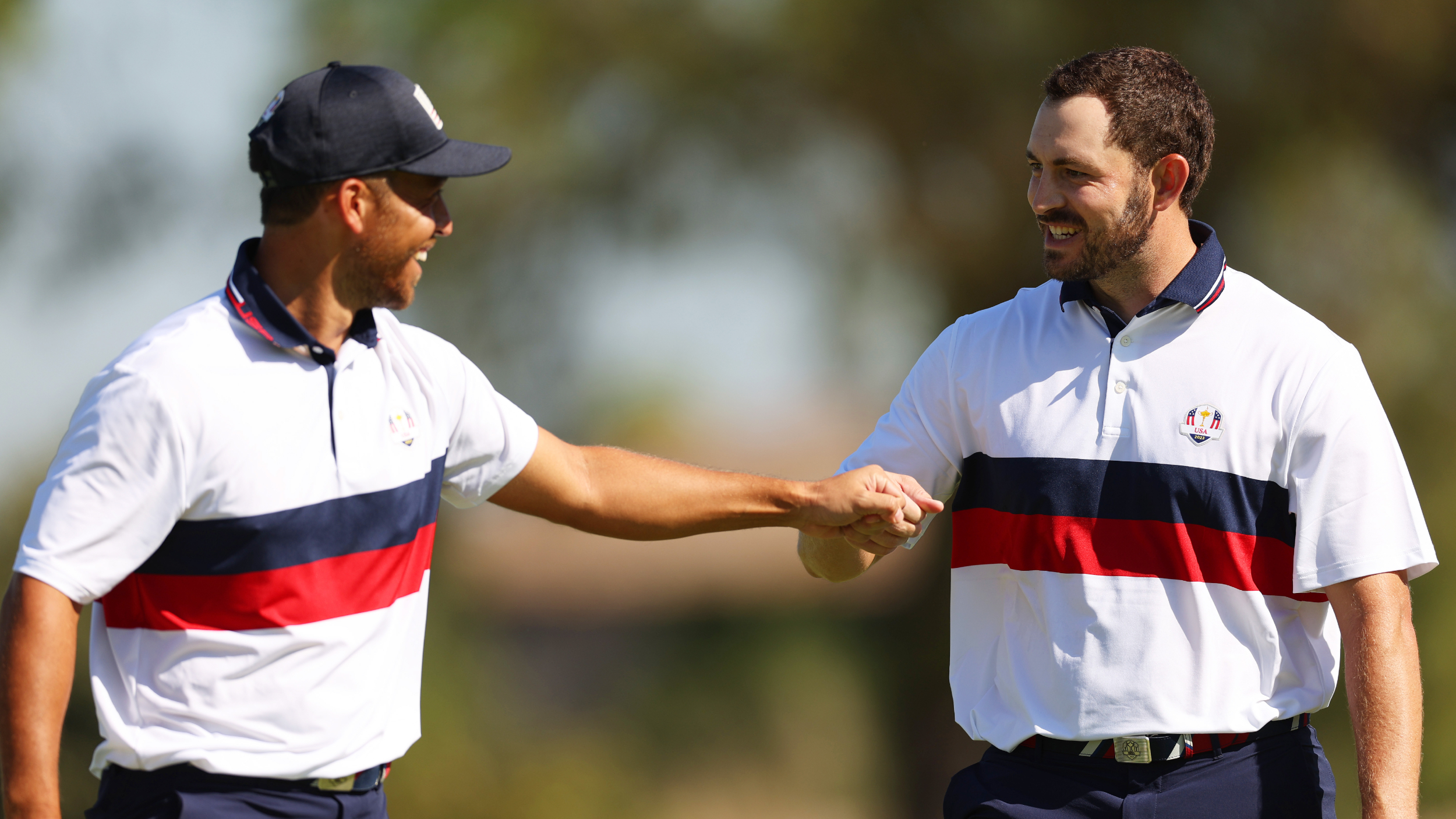
It's the most difficult format in golf but can be crucial in deciding who lifts the Ryder Cup - and recent history suggests the home side usually prevails in foursomes.
The last five teams to win the foursomes battle also went on to win the Ryder Cup - with all five being the home teams.
The last side to lose the foursomes but win was Jose Maria Olazabal's European side that pulled off the Miracle of Medinah back in 2012.
Now, the question can be asked about whether winning the foursomes is crucial to winning the Ryder Cup or whether it's just a consequence of playing at home - but either way it's something Europe will have to contend with if they're to pull off that rare victory on the road.
Home team dominates Ryder Cup foursomes

Europe have traditionally been thought of as a better foursomes side, with a better team ethic and closer bond between players often cited as why they can perform better in a team.
In actuality, it's just the home side that has dominated the alternate shot format, with the hosts winning the foursomes clash in the last nine Ryder Cups.
Some have been close calls with a pretty even foursomes battle, but some have been so one-sided they've helped decide the entire contest.
Europe were unbeaten at Gleneagles in 2014 in foursomes when Paul McGinley got his pairings spot on, with the hosts winning six and halving two of the eight matches.
Thomas Bjorn's side in Paris in 2018 also won six, losing two, to gain a four-point advantage, while Luke Donald went one better and won seven foursomes in Rome, losing the other to gather a huge six-point buffer.
The USA, unsurprisingly, dished out a 6-2 hammering in foursomes at Whistling Straits in 2021, while they went 5-3 at Medinah in 2012 and 5-2-1 at Hazeltine in 2016 before running out hefty 17-11 winners.
Overall, the home side has a stellar record of 45-16-11 in foursomes since 2006.
Why is foursomes crucial in Ryder Cups?

So why does the home side always win foursomes? Well, it's the toughest format where any mistakes are punished, so given there's extra nerves and extra crowd noise to deal with as the visitors that is magnified in foursomes.
Course set-up is also in favor of the home side and that's harder to overcome when playing just one ball, while the recent trend for playing foursomes first just exacerbates those issues.
It's also the hardest to plan for, as captains have to take a deep dive into the course and player stats to see who is best suited to tee off on each hole for each pairing - and again being such a volatile format that can make all the difference.
In the last two Ryder Cups the home side have skipped into 4-0 and 3-1 leads after starting the day with foursomes, and that leaves the visitors behind the eight ball right away.
The simple fact is it's so much harder to chase the game at the Ryder Cup, comebacks are quite rare, so even though the foursomes provide just eight points there's just not usually the landslides in fourballs and singles to recover from a heavy foursomes defeat.
It's not particularly close as well, with the home side in the last six Ryder Cups winning the foursomes 36.5-11.5 while in the rest of the action, the fourballs and singles, it's been a lot more even at 63.5-56.5.
So it could actually be that these eight foursomes points decide the Ryder Cup, and that's why home sides have such a strong advantage as it's easier to prepare for and play foursomes on your home turf.
Either way, the foursomes will again be crucial at Bethpage and will be where Luke Donald is pouring in all his resources to try and find an advantage that could end the recent home team dominance.







